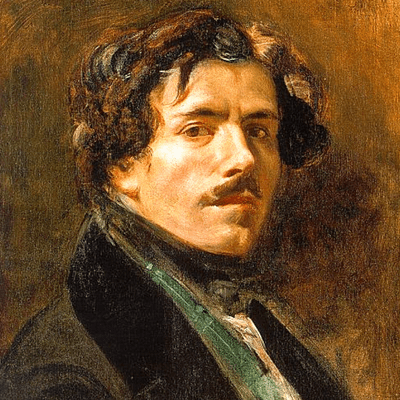
October 8, 2024
J.R.R. Tolkien was arguably the greatest author of the 20th century. He sold over 150 million books in his lifetime, and his masterpiece The Lord of the Rings singlehandedly redefined the genre of fantasy.
Few writers match the levels of success Tolkien enjoyed in the last century — but what was the secret to that success? Was it talent? Hard work? Pure genius?
The answer might be “yes” to all those questions, but there’s another missing piece…
Tolkien himself said his success was all thanks to an obscure literary group no one ever heard of. For years, he toiled alongside a small group of men who molded his budding genius into the master storyteller he became.
Today, we explore the story of Tolkien and his literary group The Inklings — and what it can teach you about cultivating your own genius.

The legendary Inklings literary group was preceded by a legendary friendship. In the 1920s, Tolkien began his career at Oxford University, and it was here that he met fellow faculty member C.S. Lewis. The two professors quickly became fast friends, and bonded over shared interests of writing, classical literature, and mythology.
Tolkien and Lewis also shared a dislike of the modern publishing industry. They believed contemporary literature was banal, trite, and devoid of the beauty that marked classical literature of the past.
Lewis famously said to Tolkien, “If they won’t write the books we want to read, we shall have to write them ourselves!” Tolkien’s literary career commenced shortly thereafter.
Initially, Tolkien lacked the confidence and discipline to finish his works. Lewis, however, was eager to encourage his friend — he saw great potential in the struggling Tolkien. He also encouraged his friend to seek out feedback from others, and, to his credit, Tolkien did just that.
Men like Owen Barfield, Charles Williams, and Lord David Cecil soon got pulled into Tolkien’s orbit and began to brush shoulders with one another. Eventually, the men asked themselves — “what if we all joined forces?” And with that, the Inklings were born…
Consistent meetings of the Inklings began in earnest in 1933. By appearance, there was nothing special about these meetups — members simply gathered at local pubs or empty classrooms. They would share their work, give feedback, and enjoy a few pints in the process.
Tolkien called these meetings “a feast of reason and a flow of soul.” But it wasn’t all fun and games — as C.S. Lewis’ brother Warren remarked:
“We were no mutual admiration society: praise for good work was unstinted, but censure for bad work — or even not-so-good work — was often brutally frank.”
Tolkien showed up to these meetings with rough drafts of ideas that would go on to become The Hobbit and The Lord of the Rings. In the time it took him to finish those works (~3 years for The Hobbit and 17 for LOTR), his ego was bruised often. But it was precisely this process of seeking feedback and rewriting that paved the path to his work’s unparalleled success.

But just how important were the Inklings? Couldn’t a genius like Tolkien have succeeded without them?
According to Tolkien, the answer is no. As he wrote about his good friend C.S. Lewis (and by extension, The Inklings):
“Only by his support and friendship did I ever struggle to the end of The Lord of the Rings.”
Without the Inklings, The Lord of the Rings would never have existed — and Tolkien might have just been another amateur writer with genius ideas, but no finished product.
Tolkien’s story suggests that genius isn’t primarily about God-given talents or revolutionary ideas. Rather, it is more often than not simply the product of a disciplined work ethic and surrounding yourself with the right people.
In Tolkien’s case, his genius was forged by a brotherhood grounded in common interests, a shared love of virtue, and brutal honesty. It was only fitting that when the first edition of The Lord of the Rings was finally published two decades after their first meetings, it was dedicated to none other than the Inklings.
For Tolkien, The Inklings were more than a basic friend group. They were intelligent, like-minded men of brutal honesty. They didn’t just offer critiques, but provided a “feast of reason and flow of soul.” Tolkien’s desire to forge an epic tale was nourished by a brotherhood who shared his same passion for life. Your ability to find and join the right community can make all the difference on your path to success.
Feedback stings. Tolkien spent a decade sharing his work and having it torn apart by his trusted friends. Though the editing process was grueling, it fueled Tolkien’s greatness. Humility precedes mastery, and one of the fastest ways to improve is to actively seek out feedback.
Without the Inklings, it’s likely Tolkien would never have finished The Lord of the Rings. Though they were brutal critics, the Inklings were true friends at heart. When Tolkien thought of quitting his project on multiple occasions, they encouraged him to keep going.
Quitting becomes much harder when you have true friends in your corner — as Aristotle reminds us, “In poverty and misfortune, true friends are a refuge.”
As always, if you enjoyed this email and want to support my work, the best way to do so is by purchasing a fresh bag of Imperium Coffee.
All the proceeds from Imperium go towards sharing more stories like this and helping others learn from the lives of great men — and since you’re on this list, you can use the code INVICTUS10 for 10% off your order!
Thanks as always for your support, and I look forward to seeing you on this week’s Spaces.
Ad finem fidelis,
Evan